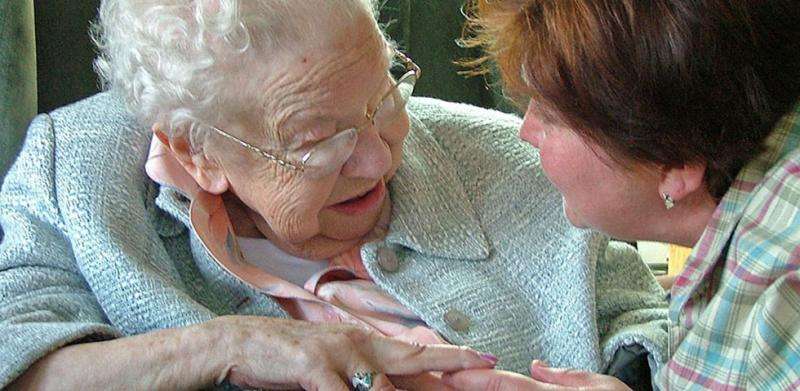Illness that's as lethal as heart attack but often missed

Almost everyone has a delirium story, although they don't always know it's called that. Most will recall the experience of a grandmother, a father, a child, a friend who became very confused in hospital, and in some cases died or was never the same again.
Health professionals tell of the distressing experiences of patients or their own family members. Some people recall their own experience of delirium during illness or injury, and for the first time have a name and explanation for what happened to them.
"To say our dad became unrecognisable is a gross understatement. Emergency hip surgery gave way to a delirium that enveloped our father in agony, the likes of which we never knew could exist in the world of medicine," says the daughter of Mr B.
"We stood at his bedside and watched helplessly as he moved from surgical anesthesia onto pain medication and then into a hyper-agitated delirium that nearly killed him. For more than a week, he was unable to rest, sleep, be soothed, reasoned with or communicated with – all while we were given no explanation or diagnosis of what was happening to him."
A quarter of older people in hospital suffer from delirium, an illness with the same death rate as a heart attack. Despite being both common and serious, delirium is often neither recognised nor treated by health professionals in hospitals, residential aged care facilities and the community.
Today is the inaugural World Delirium Day, an initiative of iDelirium, a newly formed federation of the Australasian, European and American delirium societies. The aim is to promote global action to increase community awareness about delirium and inspire better prevention, detection and care for affected people.
What is delirium and why does it matter?
Delirium occurs when illnesses, injury, surgery or medicines cause a sudden and severe decline in a person's mental function. The result is reduced ability to concentrate, think and communicate, and sleepiness and/or agitation. Many people also have disturbing hallucinations or paranoid delusions. Delirium usually lasts for hours to days, but for some people it may last for weeks, even months. Delirium is distressing to experience and witness.
One in four older people becomes delirious during a hospital stay; even more do so in intensive, geriatric or palliative care units. Older people, especially those with dementia, are at highest risk, but it can affect any seriously ill or injured person, even children.
Delirium is debilitating and dangerous. Even a brief episode can lead to more adverse effects than can be explained by the underlying illness or injury alone – longer hospital stays, loss of independence, longer-term cognitive decline, increased admissions to nursing homes, and death.
How can we treat and prevent delirium?
The most effective care is to prevent delirium from occurring. One-third of episodes can be prevented by simple actions such as helping unwell people get out of bed and move, eat and drink (to prevent dehydration), get a good night's sleep, talk and, if needed, to use glasses and hearing aids. In other words, the best care of people at risk requires health professionals to be attuned to the fundamental needs of every unwell person.
Detecting delirium early helps to ensure the illnesses or medications that may have triggered the delirium are promptly addressed. Patients and family need accurate and timely information about what is happening and what can be done.
Last year, the Australian Commission on Safety and Quality in Health Care launched the Delirium Clinical Care Standard to guide care of all at-risk people in hospital. Resources to support implementation are available for patients, family and health professionals. This initiative will go a long way to addressing the under-recognition and under-treatment of delirious people that has been endemic for too long in our hospitals.
However, much remains to be done. Improving care also requires us to listen to and work more closely with people who have been delirious, or witnessed delirium. Personal stories are powerful, because such stories move hearts and minds. Consumer insights are vital towards improving health care, research and advocacy. Delirium, as a common, serious and neglected condition that may affect any one of us, urgently requires our united attention.















